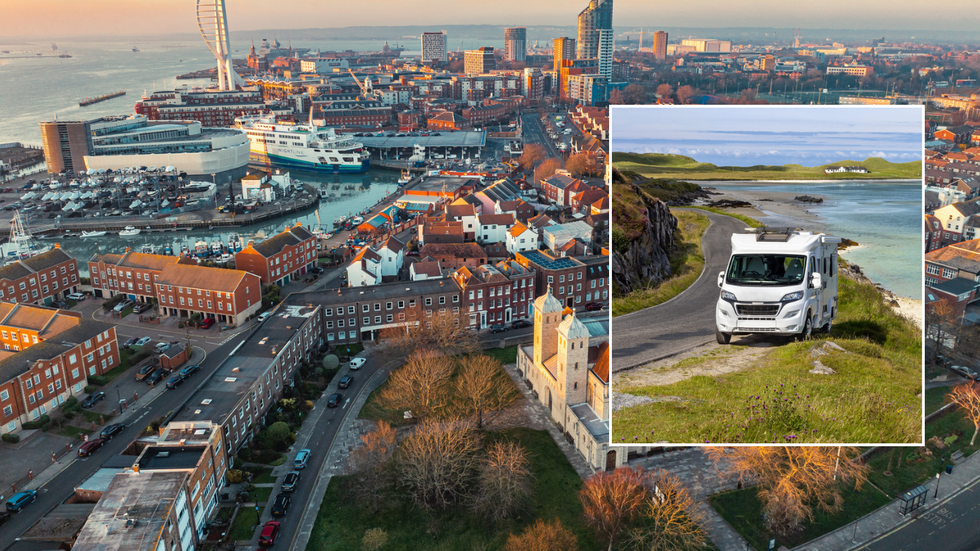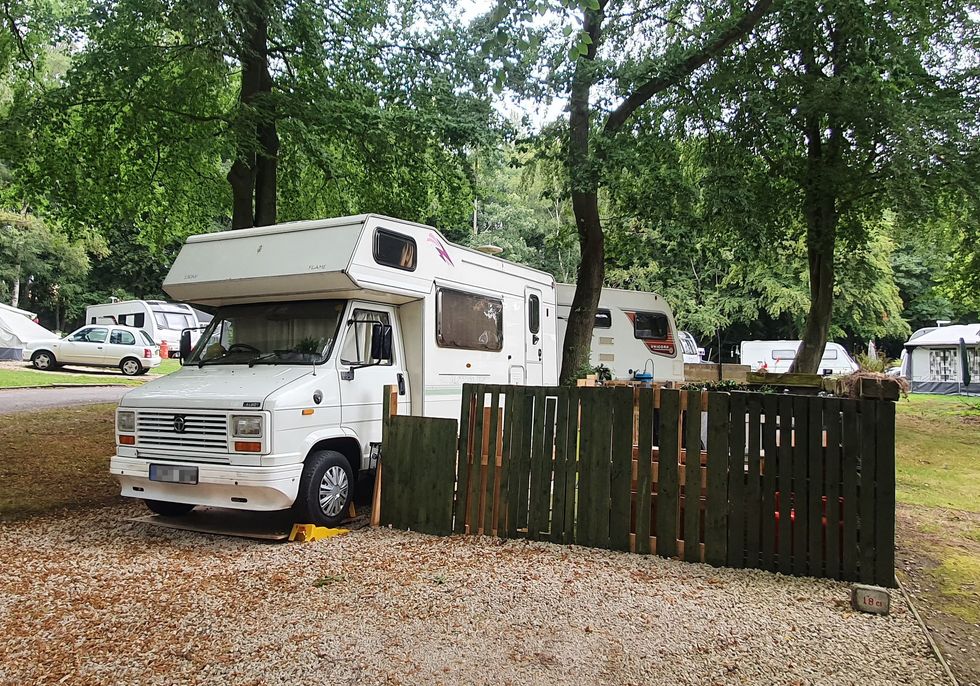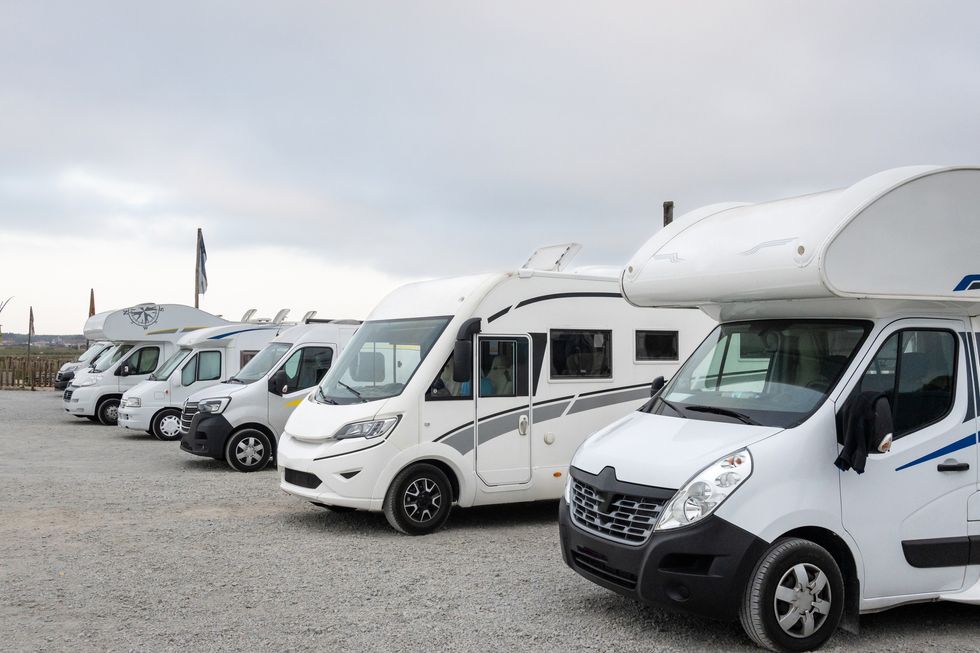



Motorhome and campervan drivers have been warned they will soon face an overnight parking ban at a popular tourist location following complaints by residents.
Hampshire County Council revealed that it has approved new parking restrictions along New Lane and Saltgrass Lane in Keyhaven.
Under the new measures, campervans and motorhomes will be prohibited from parking overnight between 8pm and 8am.
There will also be changes to the pay-and-display parking fees for the larger vehicles, which will increase to £1 per hour from Monday to Sunday, between 10am and 6pm.

Motorhome and campervan users will be banned from parking between 8pm and 8am
GETTY
The new measures hope to prevent numerous larger vehicles from clogging up the roads along the seafront and nearby areas.
County councillor Fran Carpenter explained that the number of campervans visiting Keyhaven increased "hugely" since the pandemic, which risks impacting the local area and adding more anti-social behaviour to the otherwise tranquil site.
Carpenter said: "I visited a few days ago. There was visible litter in the salt marsh. Campervans, some bigger than buses, were parked as far as the eye could see. A van selling souvenirs and an Uber Eats car blocked the road while dropping off pizzas."
Meanwhile, Councillor Lulu Bowerman warned that there was a clear impact of having larger vehicles in the area. "There are no public facilities overnight for parking, and campers use the local land, and many residents have asked for these controls to be introduced," she said.

The restrictions are expected to come into force in August and September
PAChanges to the parking infrastructure are expected to take place between August and September later this year, the council detailed.
Bowerman explained: "I think the scheme would bring order to this particular beautiful part of Hampshire, and I think it’s very necessary to maintain full accessible travel at all times. The new proposal would manage the situation."
She shared that proposals to introduce parking charges on two seafront roads in Keyhaven came from local concerns about unrestricted parking in the area, which resulted in an increase of overnight stays by motorhomes and campervans.
This increase has meant the council has seen a rise in littering and another anti-social issue, which has been causing concerns for residents in the area.
By introducing parking charges, it would enable the council to curb overnight parking more effectively and to "encourage a quicker turnaround of daytime parking so more people can enjoy this popular location," she stated.
The council has also looked at the feedback received through two rounds of consultation on the proposed changes, with the responses being in favour of more action and parking restrictions.
Bowerman noted that a "modest charge" which falls in line with similar locations, will deliver broader benefits to visitors while also "supporting the management of this ecologically sensitive site".
Hampshire County Council is the latest authority to introduce an overnight parking ban for larger vehicles and follows a similar move by West Sussex County Council.
 Motorhomes and campervans have been growing in popularity across the UKGETTY
Motorhomes and campervans have been growing in popularity across the UKGETTY
The council issued new enforcement which would prevent motorhomes and campervans from parking on the road between 10pm and 9am every day along Mill Road.
The parking ban was issued with support of Arundel Town Council which explained: "Following a number of years campaigning and lobbying by both residents of the town and Arundel Town Council regarding the parking of motorhomes on Mill Road, we are pleased to share that the Traffic Regulation Order to address this has been agreed."
West Sussex Council added that the new parking measures will allow motorhomes and caravans to visit the area during the day without any restrictions.
However, the authority noted that Mill Road is not a suitable location for long-duration stays, due to concerns around the environmental impact caused by the lack of proper sanitary facilities, as well as the use of fire pits and barbeques on the grass verge.
